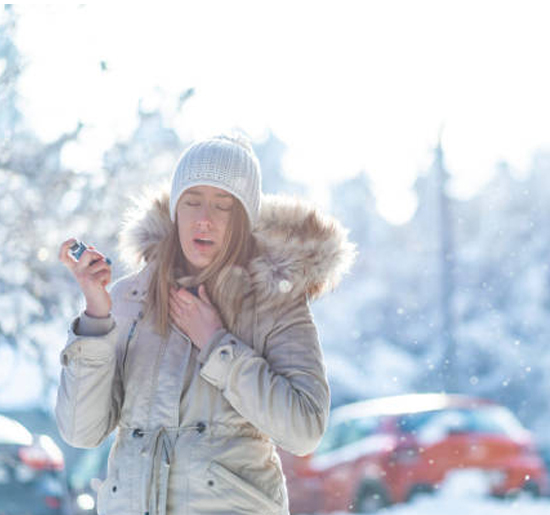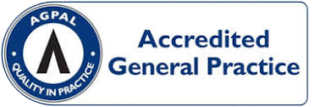10 Tips to Make Winter Easier on Your Asthma

Unless you love stepping outside to cold, dry air that smacks you in the face, winter (post-holidays, of course) can be a dreary season. For people with asthma, the cold weather can worsen their symptoms.
“There are two issues with winter for people with asthma,” notes Marilyn Li, MD, an allergist and immunologist with the LAC+USC Healthcare Network in Los Angeles. “One is that the air is cold and dry, and the other is people have more sinus and upper respiratory infections, either of which can trigger or worsen asthma attacks.”
To keep a handle on asthma attacks during the cold-weather months, here are 10 things you can do.
1. Wash your hands
Properly (and frequently!) washing your hands with soap and water is one of simplest and best ways to avoid spreading or catching colds and other viruses, Dr. Li advises. Alcohol-based hand sanitizers and moist towelettes also do the trick. Also emphasize the importance of good hand washing to your children to even further reduce the chances of spreading germs around your house.
2. Get a flu shot
The Centers for Disease Control and Prevention (CDC) recommends that most people age 6 months and older get an annual flu shot to help protect against the flu virus. Having asthma won’t make you more susceptible, but if you do get the flu, the results could be more serious, even if you keep your asthma symptoms under control. “It’s important that people with asthma get the injectable form of the flu vaccine made with inactivated [killed] flu virus,” Li says. She advises that people with asthma shouldn’t get the nasal spray vaccine because it contains live virus. Your doctor may also recommend that you get a pneumonia vaccine for extra protection.
3. Don’t sit by the fireplace
While sitting by the fire sounds lovely and cozy, it’s not so great for your asthma. “The more evidence we have, the more we realize that burning wood is like burning tobacco,” explains Todd Rambasek, MD, of ENT & Allergy Health Services in Cleveland. “Smoke is smoke, and smoke can irritate your lungs, especially when you have asthma.”
4. Keep your mouth closed
If this sounds like something your mom told you as a kid, you’re not alone. But keeping your mouth closed is good for more than simply social graces — it’s better for your lungs. Ideally, you want to breathe through your nose, not your mouth, when you’re out in the cold because the nose warms up the air for the lungs, Dr. Rambasek says. Another way to warm and humidify the air you breathe is to wear a scarf or muffler over your nose and mouth. Some people find a ski mask or face mask helpful, he says.
5. Replace filters
Your home heating system may blow dust and debris throughout your house, especially when you first start it up for the winter. It’s important to clean and replace filters before turning on your system so as not to release the debris and trigger an asthma attack. Clean and check the filters periodically throughout the heating season to avoid issues with winter asthma. Also, try to keep the temperature and humidity levels in your home consistent.
6. Exercise indoors
On days when it’s bitterly cold outside and the wind chill makes it feel like it’s below zero, Li recommends going to the gym instead of exercising outside. “The temperatures and the humidity in the gym are less likely to cause a problem,” she says. If you still want to exercise in the fresh (albeit cold) air, choose a time of day when it might be warmer, such as the midafternoon.
7. Warm up before working out
A recent study showed that people with asthma recover faster and have greater lung function after exercising when they are warmed up. This is important whenever you work out, but especially in winter, according to Rambasek. “Consider doing your first 20 minutes of your run on a treadmill before heading outdoors in the cold,” he says.
8. Take steps to prevent asthma flares.
Take a preventive dose of your asthma medicine before heading outside, whether to exercise, walk the dog, or run errands. “You may need a bronchodilator at least a half-hour before you’re heading out in the cold,” Rambasek says. Your inhaler will help open your airways and give you the extra protection you need.
9. Have an asthma action plan
No matter what the season, you should always know what to do if your asthma symptoms flare. Your action plan should detail how to control your asthma over the long run and what to do if you have an asthma attack. Be sure you know when to call your doctor and when to go to the ER.
10. Take your medications
Work with your doctor or asthma specialist to create an effective treatment plan, and continue to get regular checkups, Li says. It’s important to follow your treatment plan regardless of the time of year. Don’t let a busy work or social schedule cause you to ignore your health. If you find your asthma symptoms worsen in the cold weather, talk with your doctor about possibly changing the mediations you take and when you take them, advises Rambasek.
Keeping your asthma under control may take a little more effort in the cold of winter, but these strategies should get you through the season without worsened symptoms.


